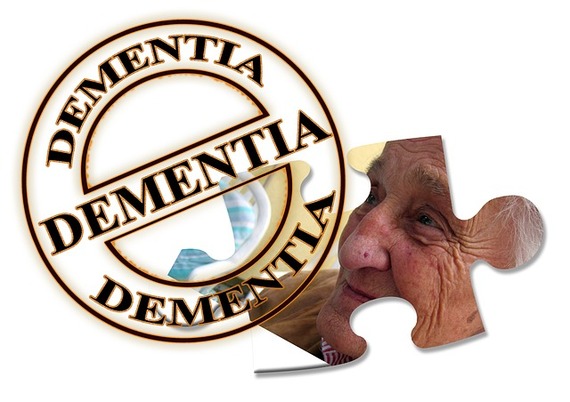Alzheimer's - already afflicting well over five million Americans -- is expected to claim more than 16 million of us by 2050 if a cure isn't found. Today it is at the top of the Bad News list of potential diagnoses for almost anyone over 50. Justifiably so, since the Centers for Disease Control and Prevention reports than one in three seniors now die with Alzheimer's or other dementia.
That's the bad news.
The good news, explained recently by Patricia Spilman, M.S. at a sold-out Commonwealth Club event in San Francisco, is that there are things one can to do lower the risk, and perhaps slow the progress of the disease. Spilman, who is Staff Scientist at the Buck Institute's Bredesen Lab, should know. She has spent more than two decades researching neurodegenerative disease, and has written and spoken extensively on Alzheimer's and related diseases.
"Forgetting," Spilman says, by way of reassurance, "is normal. You don't need to remember where you put the car keys last week, or a doctor's appointment last month." And studies -- including one by Buck Institute founding President and CEO Dale Bredesen M.D. that is fascinating even for a lay reader -- suggest that cognitive decline can be slowed, or in some cases reversed.
Spilman's prepared remarks consisted largely of useful, realistic advice about how to delay the cognitive decline most of us will experience at some point. The audience, ranging from 20-somethings to more than a few senior citizens, was furiously note-taking throughout (or furiously jotting down questions for the Q&A session to follow.)
Exercise - particularly activities that combine movement and navigation such as tennis or golf - is at the top of the list. "It's easier if you have a partner," Spilman suggests, "because this adds the important element of socialization. Walking, plus climbing, is particularly good if you try new routes." More than a few audience members nodded knowingly when Spilman noted the increasing, widespread dependence on mindless GPS. "Take the opportunity to look at a map," she said.
Cognitive decline can also be offset by paying attention to the critical need for plenty of sleep. To help with a good night's sleep, Spilman advises allowing at least several hours between eating and going to bed, and having a dark room. Chronic stress is relieved by a combination of exercise and sleep, along with those other preservatives of gray matter, yoga and mindfulness meditation.
Also good for the brain: almost any sensory stimulation. Music, smells, touch. Spilman cites Oliver Sacks' Musicophilia: Tales of Music and the Brain, and Norman Cousins' Anatomy of an Illness, in which Cousins treated himself with comedy as useful reading.
"Do something new every week," Spilman suggests; "every day. Have goals in later life. Take classes, volunteer, build intergenerational relationships, pursue spirituality, encourage others to change and to grow."
Computer games can improve cognition also. Spilman did not mention any specific sites, but this writer has enjoyed BrainHQ, and other brainy items from Posit Science's Karen Merzenich, as well as introductory games on the Lumosity site. Most fascinating of all is the University of California San Francisco (UCSF)'s Brain Health Registry, in which anyone can participate; it's free, and your brain might wind up helping someone else's brain one day.
The Q&A segment following Spilman's talk was fast and full of both personal stories and pertinent questions: "What's normal decline?" (The difference between not remembering the movie star's name and not being able to do a job well. You might keep a diary of cognitive function.) "What about genetics -- the father-daughter-son factors?" (Yet unproven.) "How about overexposure to electromagnetic fields? (Don't have unnecessary radiation.) And enough other issues raised for two or three more hours.
No one's brain, in any event, was idle. Which indicates that everyone in Spilman's audience was lowering his or her risk of Alzheimer's.
